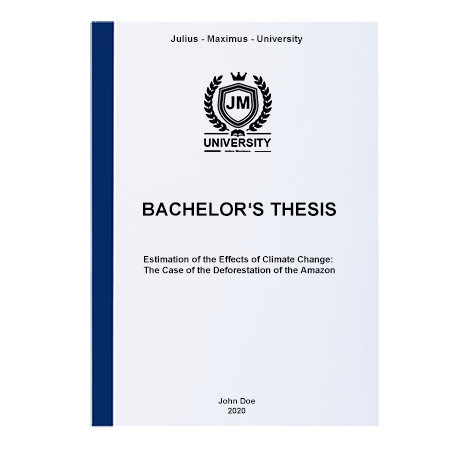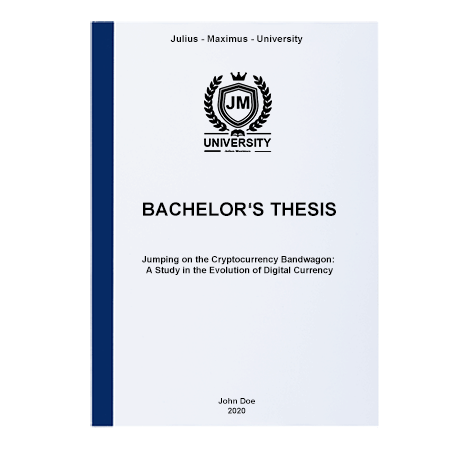
Definition: Thesis Title
A thesis title is a statement that frames the argument you are presenting in an academic paper. It is a short phrase that tells the audience what the content is about. Readers should be able to get a glimpse of the study from the thesis title. It is why you have to invest time in coming up with an excellent one. Think of the title as the packaging to your thesis.
It has to be pretty enough to attract the right audience. The thesis title should comply with certain requirements. Different disciplines have varying formats for academic writing. MLA, APA and PPA are three of the common styles. These formats determine elements like capitalisation, abbreviations and quotations.
The title of a thesis is the first real contact that readers will have with a piece of academic writing, and therefore, it has to be compelling enough. A thesis title sets the pace for the content. It can entice the audience to proceed with the rest of the material or pass it over. This article explores some elementals of a good thesis title.
FAQs
An exceptional title for a thesis must accomplish several things. It has to reflect the content in the paper. Readers should know at first glance, what your thesis topic is. For this reason, a thesis title should be concise, precise, and relevant. The best titles are brief. Too many words can discourage some readers. In the same breath, it shouldn’t be too short. Thesis titles thrive on specificity, and that requires using more than four words.
Yes. You can structure the title of your academic paper as a question. Questions are catchy and go a long way in capturing attention. They incite curiosity and get the reader to want to know more. For a question to work as a thesis title, it must reflect the tone of the paper and predict the content. It should also be closely linked with your thesis statement. Readers should not be left wondering what the piece is about after they’ve read the title.
The length of a thesis title is not definite because it’s an element that depends on many factors. A thesis advisor might have a specific range for students. For example, a professor might ask a paper to have 15 to 25 words in the title. 10 to 15 is a great number to work with for a thesis title. Never have a title that is less than 5 words.
Tip: If you’re having trouble getting the words from your brain onto the paper, you may be struggling with writer’s block. Head over to our blog post to read about how you can escape from the clutches of writer’s block.
The research title shows the main idea of your study. The reader should have an idea of the thesis formatting after reading the thesis title. If the title states ‘case study’ for example, then the reader will expect an abstract. It is possible that you are using the fewest possible words needed to describe the purpose of your research paper. It is important that the research title predicts content, reflects tone, includes important keywords and is interesting.
During the beginning of the writing phase, you should have a ‘working title’. This doesn’t have to be the final title, and it will probably be altered as you develop your thesis statement, but the working title can help to keep you on the right track. You can also include a subtitle to explain additional content.
- ✓ Free express delivery
- ✓ Individual embossing
- ✓ Selection of high-quality bindings
Thesis Title: Main Components
Thesis titles are as distinct as the research they describe. However, several fundamental factors exist in every thesis title. Whether its social sciences, economics or political science, these elements always apply. They are the drivers that help writers create titles that are worth reading.
Area of Interest
The objectives of the study are a huge part of a thesis title. What you are looking to accomplish with your research sets the tone for everything that happens. A good title should be a reflection of that. The area of interest provides the broad scope of the paper, but you also have to factor in the specifics. For example, a study on the effects of social media marketing on the buying process offers a wide range to work with. However, your study might be on specific networks such as Twitter and Instagram. The title should, therefore, mention the exact social media sites. Use the area of interest as a rough guide to what the thesis title should be about.
Internal Consistency
An effective title should not just be precise and attractive; it must remain consistent internally. Any decent title should reflect the study as accurately as possible. When readers see the thesis title, they have a clue of what the paper contains. If the thesis title says ‘a case study approach,’ the readers will expect to have an abstract, introduction, methodology, and so on. A lack of consistency can generate a disconnect that will push the audience away. Be cautious about the language and style of writing to avoid losing or misleading the reader along the way.
Formatting
Never submit a thesis without checking that the title adheres to the required formatting standards. Not every academic paper needs formatting. Styles vary depending on disciplines and institutions. The formatting requirements matter because they determine how to write quotations and citations. A writing style also dictates the organisation of the piece. Writers might have specific instructions about the tone of the thesis. Consider all these elements carefully when crafting a thesis title. Don’t forget about the rules of capitalisation of a title.
Examples of Thesis Titles
Here are two examples of thesis titles:

‘Estimation of the Effects of Climate Change: The Case of the Deforestation of the Amazon’
As you read earlier above one of the main components of a thesis title is the area of interest. The first part of the thesis title ‘Estimation of the Effects of Climate Chance’ isn´t enough because the range is to wide.
Therefore it is important to add the second part of the thesis title ‘The Case of the Deforestation of the Amazon’. This gives the reader the exact information what your academic paper is about.
Here are a few other examples of thesis titles:
‘How Mobile Money is Banking the Unbankable in Third World Economies’
‘The Correlation Between Social Inequalities and Poor Voting Habits’
‘How the Mobile Phone Disrupts Sleep Patterns’

‘Jumping on the Cryptocurrency Bandwagon: A Study in the Evolution of Digital Currency’
In this example you can see that there is internal consistency because it shows the reader what the paper comprises.
The formatting of the thesis title depends on institutions. So there are more possibilities of how your layout could look like. Furthermore the thesis title in this example is still brief enough which is very important. The length of 10 to 15 words is a good number of words.
Tips for your Title
A missed punctuation mark, too many words or too much jargon are some aspects that can easily ruin a thesis title and consequently, the entire paper. You can avoid common mistakes like these by focusing on these simple tenets:
- Purpose of the study
- Scope of the study
- Techniques used for the study
- Tone of the study
Before crafting the final title for your academic paper, have a working thesis title. A working title is a loose topic that you need to help direct your study. It’s easy to lose track of your research when you don’t have a concrete anchor.
Bear in mind that the final thesis title comes after the completion of the research. You should know how much ground the content covers to develop a proper thesis title.
in Your Thesis
In a Nutshell
What to take away about writing a captivating thesis title:
- Be clear about the subject of the research and its scope while ensuring that the title reflects the study accurately.
- The thesis title should be concise, engaging, descriptive and explanatory without being informal or cute.
- Avoid too much jargon, abbreviations, initials, acronyms and redundant words unless the requirements specify it.
- Capitalise all the necessary words, including all nouns, pronouns, adjectives, verbs, and adverbs.
